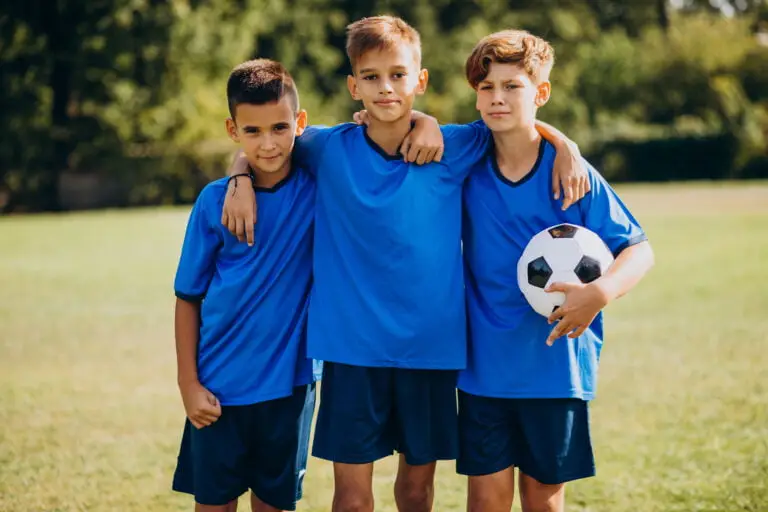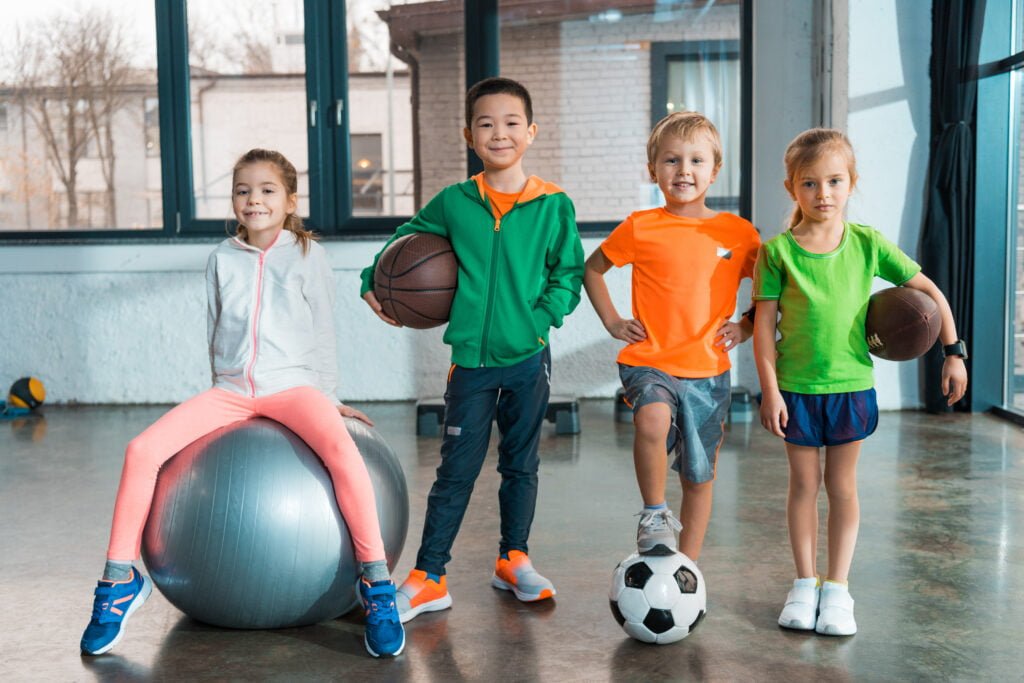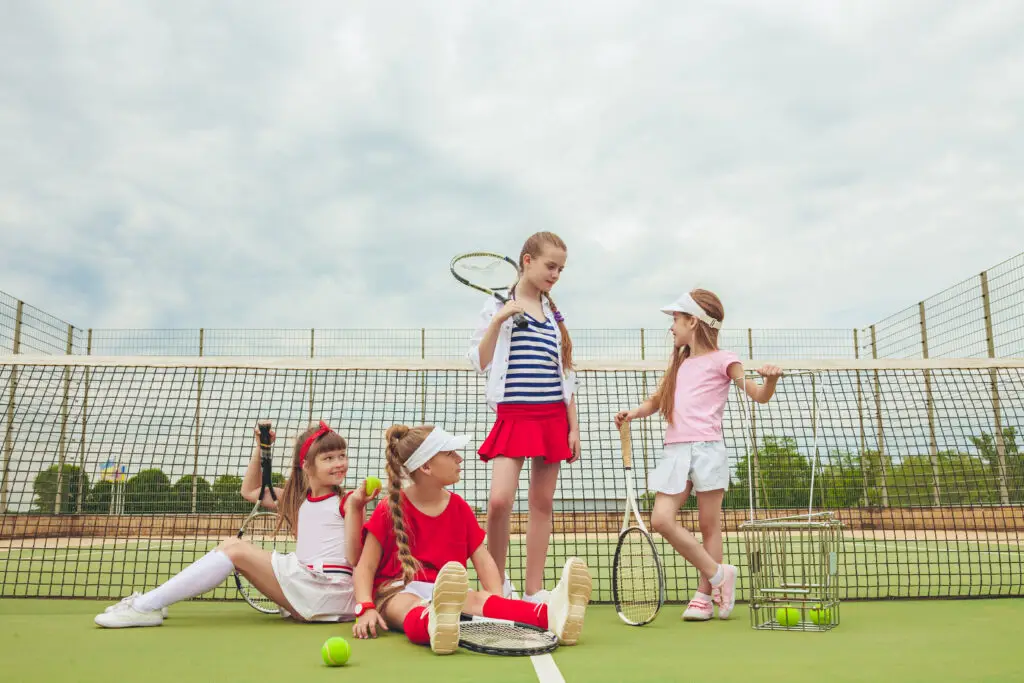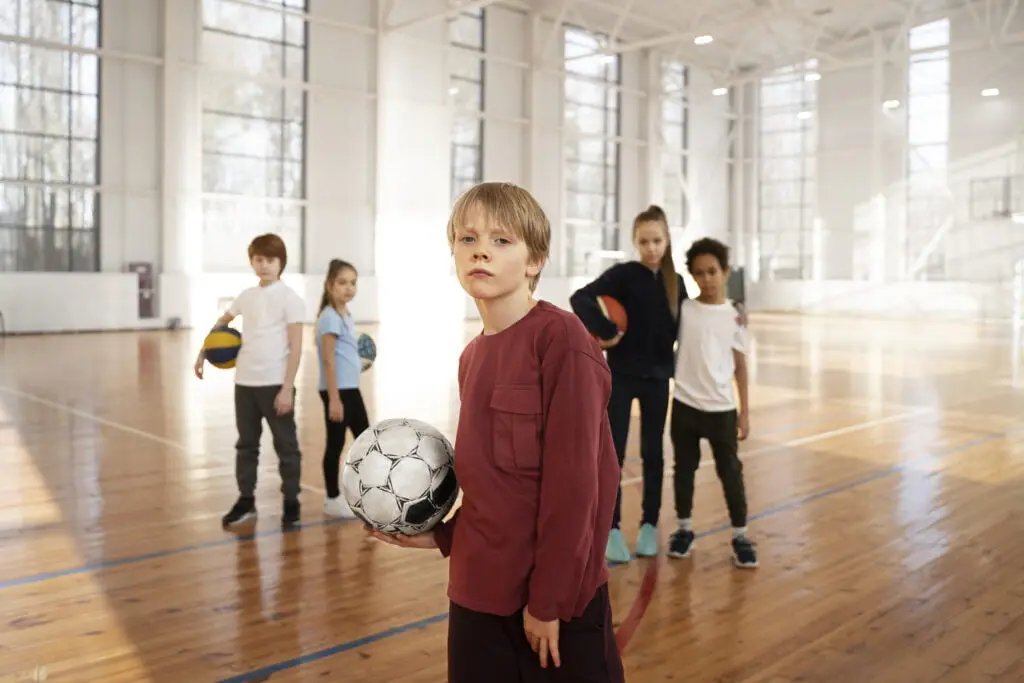What Skills Do Children Learn During Physical Activity?
Children’s First Experience With Physical Activity
Picture a bright day in a park bustling with cheerful kids. A little boy is trying out his brand-new bike for the first time. He begins tentatively but quickly gets the hang of it, grinning from ear to ear. It is a significant achievement for him. Physical activity is crucial for children. It helps them learn and grow in many ways, not just by making them healthier. Activities like biking, playing tag, or soccer teach kids balance, coordination, and teamwork. So, what skills do children learn during physical activity? These experiences not only enhance their physical abilities but also contribute to their social and emotional development.
For parents looking to get their children started with physical activities, investing in quality sports equipment for kids can make a big difference.
When kids engage in physical activities, they also develop socially, emotionally, and mentally. They learn about their physical limits, how to work with others, solve problems, and build resilience. These experiences boost their self-esteem and prepare them for future challenges.
Physical activities improve motor skills too. Running and jumping help develop large muscles (gross motor skills), improving strength and coordination. Playing catch helps improve small muscle movements, which are essential for writing and buttoning clothes.
Dr. Jane Smith, a children’s physical therapist, believes developing motor skills through physical activity is crucial for a healthy life. Regular physical activity can significantly improve motor skills. Research shows that physical activity also boosts brain function. Active kids do better in school because exercise increases blood flow and oxygen to the brain, improving concentration and memory. For example, Jamie was excited during a school soccer game. Playing sports helped him focus better over time.
Team sports teach social skills like teamwork and cooperation. Kids learn to communicate effectively, take responsibility, and develop leadership qualities—skills that help them in many areas of life. So, what skills do children learn during physical activity? In summary, physical activity is essential for children’s overall development. It promotes health, improves motor skills, boosts brain function, and teaches critical social skills. Encouraging kids to be active early on prepares them well for the future. Additionally, understanding what skills do children learn during physical activity can further emphasize the importance of keeping kids engaged in various sports and activities.
Emotional Skills: Fostering Self-Esteem and Confidence
Mastering physical challenges is critical to building children’s self-esteem and confidence. When kids participate in physical activities, they face various hurdles and milestones. Overcoming these challenges makes them feel proud and accomplished, boosting their self-esteem. Take Jake, an eight-year-old soccer player. At first, he struggled to keep up with his peers. But through perseverance, he finally scored his first goal. This achievement significantly boosted his confidence and enthusiasm for the game.
Physical activity offers emotional benefits too. Regular participation helps children manage stress and navigate their emotions better. Sports and other activities provide a productive outlet for frustration or anxiety, turning negative energy into positive experiences. The structured environment of sports also teaches discipline and impulse control, which are essential for emotional regulation. Experts highlight the psychological benefits of regular physical activity in children. Dr. Karen Weiss, a child psychologist, says, “Physical activity plays a crucial role in emotional maturation. It allows children to experience success and failure safely, building resilience.” NHS data shows that regular exercise can help reduce depression and anxiety in children, improving their emotional health.
So, what skills do children learn during physical activity? They not only develop physical abilities but also enhance their emotional intelligence and resilience. Understanding what skills do children learn during physical activity can further motivate parents to encourage their kids to engage in sports and active play.
Through physical activities like using fitness trackers for kids, children develop skills necessary for emotional resilience, build self-esteem, and manage stress more effectively. These experiences lay the foundation for lasting well-being and equip them to handle life’s emotional challenges.

Life Skills: Time Management and Goal Setting
Balancing sports and academics helps children develop essential life skills. One critical skill they gain through physical activity is time management. Kids learn to allocate their time efficiently between schoolwork, practice sessions, and personal life. Early exposure to managing multiple responsibilities builds lifelong habits of prioritizing and efficiency.
Consider Emily, a young athlete who loved playing soccer and aspired to be the captain of her school team. She needed help with time management and balancing her academic responsibilities with practice schedules. Emily made specific goals to improve her endurance and game plan using outdoor play equipment. She divided her main goal into smaller tasks she could achieve step by step. This approach helped her gradually achieve her dream of becoming team captain. Stories like Emily’s show how physical activities provide an ideal setting for children to set and reach goals.
Setting achievable objectives and working methodically towards them teaches perseverance and motivates kids to stay committed. So, what skills do children learn during physical activity? This experience helps them develop a balanced, goal-oriented mindset that benefits their academic and personal lives. Starting physical activities early in life helps children with their current tasks while establishing healthy habits that can last a lifetime. Prioritization, time management, and goal setting are vital skills that translate into adulthood’s professional and personal aspects. Understanding what skills do children learn during physical activity can encourage parents to support their children’s involvement in sports.

Psychological Benefits
Leading psychologists agree that regular physical activity helps children develop essential life skills such as:
- Stress Management: Physical activity provides an outlet for stress relief.
- Resilience: Overcoming physical challenges builds emotional strength.
- Social Interaction: Group activities teach children how to navigate social dynamics, develop empathy, and build self-esteem.
Playing team sports such as soccer or hockey can teach children essential skills like teamwork, communication, and self-confidence—crucial for mental well-being.

Educational Benefits
From an educational perspective, physical activity is crucial for student well-being:
- Better Concentration: Physical activity improves focus.
- Improved Memory Retention: Exercise enhances the brain’s ability to retain information.
- Higher Cognitive Performance: Active kids often perform better academically.
Physical activity promotes blood flow and oxygenation to the brain enhancing brain function leading to improved focus greater capacity learning memory retention

Holistic Advantages
Studies consistently highlight the holistic benefits of physical activities for children:
- Mental Health: Regular physical activity can reduce symptoms of depression and anxiety while boosting self-confidence happiness
- Emotional Resilience: Physical challenges foster emotional strength
- Cognitive Capabilities: Enhanced brain function supports learning
- Social Skills: Group activities improve social interactions

Encouraging children to participate in physical activity is essential for their overall development:
Choose Activities That Match Interests Abilities
- Identify Interests: Get kids involved in activities they enjoy like team sports or playing outside.
- Tailor Abilities: Select activities that match your child’s abilities ensuring they enjoy sticking with them.
- Consider investing in bikes and scooters which are great tools for promoting outdoor play.
Maintain Balanced Schedule
- Rest Recovery: Ensure your child has plenty of rest time to prevent burnout.
- Holistic Approach: Balance physical activities with academic responsibilities.
- Integrate educational toys that combine learning with playtime.
Be Involved Supportive
- Model Active Behavior: Show your child the importance of being active yourself.
- Participate Together: Engage family activities like cycling and hiking.
- Support Child: Attend events cheer encourage stay active.
- Equip your child with proper sportswear footwear ensuring comfort and safety during playtime.
By carefully selecting activities creating a balanced schedule actively supporting endeavors parents significantly contribute developing essential physical abilities of children:
- Improved Physical Health
- Enhanced Social Skills
- Constructive Energy Release
Parents can foster lifetime wellness encouraging physical activity benefiting childhood setting foundation healthy lifestyle well adulthood.
Conclusions
Through this blog post, we have explored various dimensions benefits of physical activity for children:
- Physical Benefits
- Develops coordination strength endurance, contributing to overall health and preparing future challenges
- Cognitive Benefits
- Improves memory retention and problem-solving attention spans, highlighting mental benefits comparable to traditional learning methodologies
- Social Benefits
- Hones social skills by interacting and collaborating with peers, valuable future careers
- Emotional Benefits
- Reduces stress anxiety, improves mood, builds self-esteem, equips handle emotions
- Life Skills
- Instills discipline, time management, goal setting, balancing school activities, free time, fostering success, personal growth
Final Thoughts
At its core, physical activity offers multiple benefits. We urge parents to recognize and facilitate opportunities to engage in shared and strengthened family bonds, nurturing well-rounded growth and creating enduring paths toward health success!
To further support your child’s journey towards an active lifestyle, consider these recommended products:
- Sports Equipment for Kids
- Fitness Trackers for Kids
- Outdoor Play Equipment
- Bikes & Scooters
- Educational Toys
- Sportswear & Footwear
- Books on Physical Activity
- Health Supplements
Let’s work together create enduring path toward health success our children!
Check out my blog post: When Do Kids Learn to Swim? What the Pros Don’t Want You to Know on Mamawithlove! This article explores the best age for children to start swimming and shares insights that may not be widely known.





































































